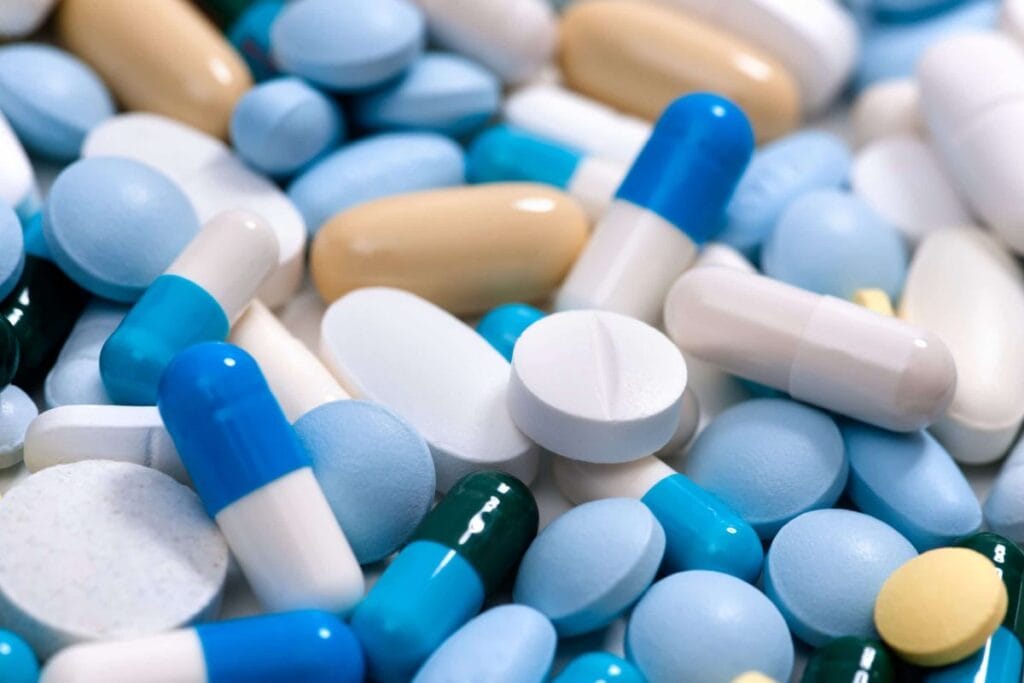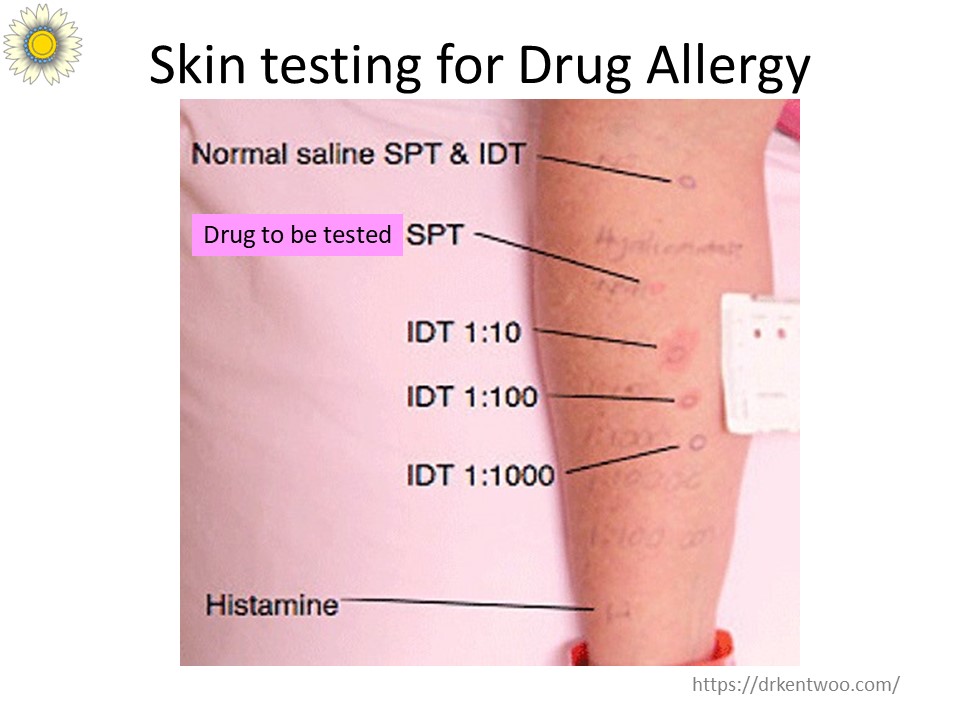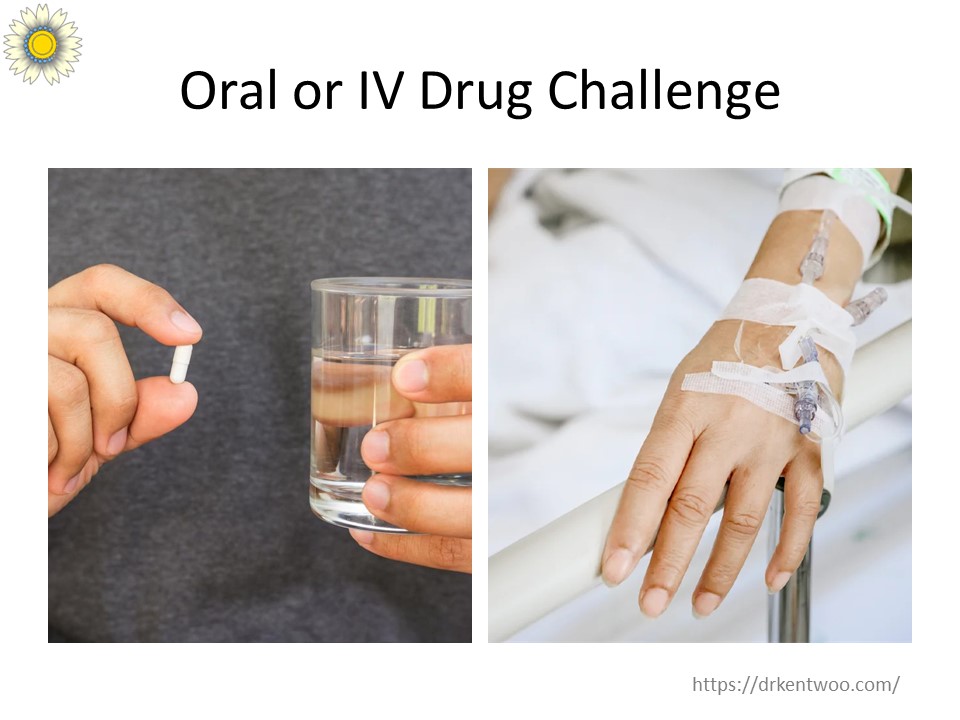Drug Allergy Testing: How to Find Out What’s Safe for You

Think You Have a Drug Allergy? Here’s What You Need to Know!
Have you ever had a bad reaction to a medication and were told you’re allergic? What if that diagnosis wasn’t accurate? Many people believe that drug allergies can be diagnosed with a simple blood test, but that’s a myth. In reality, there is no commercially available blood test that can confirm most drug allergies. You may have read about Basophil Activation Tests to evaluate drug allergy, but it is only available under research laboratory settings.
So, how do you find out if you’re truly allergic? The answer: Comprehensive drug allergy testing performed by an Allergist/Immunologist.
Why does it matter?
⚠️ Misdiagnosed drug allergies can lead to unnecessary avoidance of important medications.
⚠️ You may be using less effective or riskier alternatives.
⚠️ Proper testing ensures you get the best treatment without fear of severe reactions.
How Drug Allergy Testing Works
Step One: A Detailed Medical History
Your doctor will start by asking:
✅ What drug caused the reaction?
✅ What were your symptoms? (rash, swelling, breathing issues, etc.)
✅ How soon after taking the drug did the reaction occur?
✅ Have you ever taken the same or similar medications again?
This information helps determine if further testing is necessary and what medications may be safe alternatives.
💡 Pro Tip: Always write down the name of any drug that caused a reaction and what happened. If possible, ask your doctor about alternative medications. Find out more about: What you should do if you have drug allergy.
Step Two: Skin Allergy Tests for Drug Reactions
If your history suggests a possible allergy, your doctor may perform skin testing to check for a reaction.

🔍 Skin Prick Test (SPT)
A tiny amount of the suspected drug is placed on your skin, and a small scratch is made. If a red, itchy bump appears (like a mosquito bite), it may indicate an allergy.
🔍 Intradermal Test (IDT)
If the skin prick test is negative, a diluted version of the drug is injected just under the skin in small amounts. This test is more sensitive and helps detect allergies that the prick test might miss.
The initial IDT will be done using the lowest concentration (1:1000), and if there is no reaction, there will be a step wise progression to the highest concentration (1:10). Reaction will appear as a mild swelling that looks like a mosquito bite.
📌 Important: Not all drug allergies can be tested using skin tests. The process depends on the type of drug and reaction.
The Drug Provocation Challenge (DPC): The Final Test

If skin tests are negative, the next step is a drug provocation challenge (also called a graded challenge). This test is done under medical supervision and involves:
– Taking a small dose of the suspected drug orally or intravenously.
– Gradually increasing the dose to a full therapeutic amount.
– Closely monitoring for any signs of reaction.
If no reaction occurs, it means you do not have an allergy to the drug and can take it safely in the future.
⚠️ Why is this done in a controlled setting?
Drug reactions can be serious, causing hives, swelling, breathing difficulties, or even anaphylaxis. That’s why emergency medications are always on standby during the test.
What Happens After Testing?
🔹 Clear Answers: You’ll know whether you’re truly allergic or if the medication is safe to take.
🔹 Alternative Options: If an allergy is confirmed, your doctor will recommend safe alternatives.
🔹 Updated Medical Records: Your allergy status will be documented, preventing future misdiagnoses.
👉 Did you know?
If you have a penicillin allergy, testing can help remove incorrect labels and allow you to use this important antibiotic again—helping combat antibiotic resistance!
Why You Should Get Drug Allergy Testing
🚫 Stop avoiding medications unnecessarily – You might be able to take them safely!
💊 Ensure better treatment options – No more relying on second-choice alternatives.
🔬 Prevent antibiotic resistance – Especially if you have a suspected penicillin allergy.
👩⚕️ Gain peace of mind – Know what’s safe for you.
Think you have a drug allergy? Don’t guess—get tested!
📅 Book an appointment today to take control of your health.




